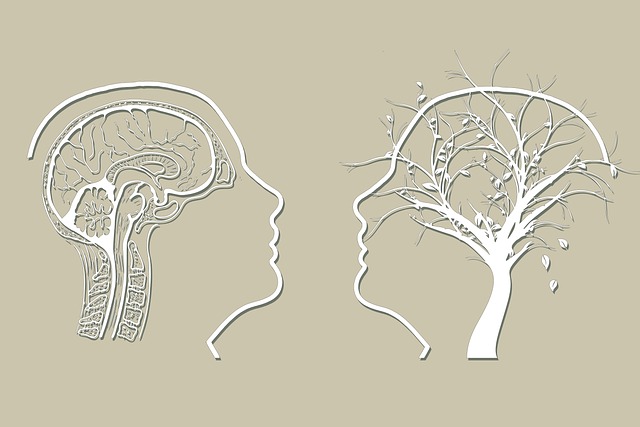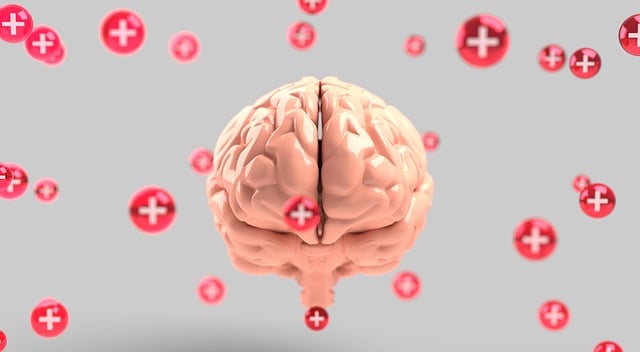Coaching programs tailored to individuals with Aurora Autism Spectrum Disorder (ASD) are crucial for their mental health growth. These programs focus on adapting traditional therapy, implementing risk management within community outreach, and fostering inclusive environments. By combining personalized strategies, cultural sensitivity, evidence-based practices like cognitive-behavioral therapy and mindfulness, and comprehensive evaluation methods, these initiatives empower individuals with ASD to navigate social environments comfortably while improving self-care, communication skills, and overall well-being. Effective Aurora Autism Spectrum Disorder Therapy integrates these approaches for improved mental wellness outcomes.
Mental wellness coaching programs are gaining prominence as a supportive tool for individuals with autism spectrum disorder (ASD), addressing unique mental health challenges. This article explores the development of tailored Aurora Autism Spectrum Disorder Therapy programs, focusing on the transformative power of coaching. We delve into understanding ASD-specific difficulties, the benefits of coaching, and evidence-based practices. Additionally, we discuss designing effective interventions, evaluation methods, and measuring the success of wellness coaching initiatives for optimal individual growth.
- Understanding Mental Health Challenges in Individuals with Autism Spectrum Disorder (ASD)
- The Role of Coaching in Supporting ASD Individuals' Personal Growth
- Designing Effective Aurora Autism Spectrum Disorder Therapy Programs
- Incorporating Evidence-Based Practices in Coaching Interventions
- Measuring Success and Impact: Evaluation Methods for Wellness Coaching Programs
Understanding Mental Health Challenges in Individuals with Autism Spectrum Disorder (ASD)

Understanding mental health challenges in individuals with Autism Spectrum Disorder (ASD) is paramount in developing effective coaching programs. Many people on the ASD spectrum face unique difficulties, such as sensory sensitivities and social communication differences, which can significantly impact their overall well-being. Traditional therapy approaches often need adaptation to cater to the individual’s specific needs, ensuring they feel comfortable and engaged.
The implementation of tailored Aurora Autism Spectrum Disorder Therapy, coupled with robust risk management planning and assessment for mental health professionals, is crucial. This involves assessing potential hazards within community outreach programs and developing strategies to mitigate them. By fostering inclusive environments and utilizing innovative coaching techniques, we can empower individuals with ASD to navigate their mental health journeys effectively while promoting their overall growth and integration into society.
The Role of Coaching in Supporting ASD Individuals' Personal Growth

Coaching plays a pivotal role in supporting individuals with Aurora Autism Spectrum Disorder (ASD) on their journey of personal growth and development. Through tailored strategies, coaches create a safe and supportive environment that fosters self-discovery and empowerment. The process involves enhancing self-awareness exercises to help individuals better understand their unique strengths, challenges, and sensory needs. By integrating these insights into daily life, they can develop effective self-care practices tailored to their specific requirements.
Coaching also extends beyond individual therapy by encouraging participation in community outreach program implementations. These programs provide opportunities for social interaction, skill development, and building supportive networks. The structured yet flexible nature of coaching allows individuals with ASD to navigate social environments comfortably, improve communication skills, and enhance their overall sense of well-being.
Designing Effective Aurora Autism Spectrum Disorder Therapy Programs

Developing effective Aurora Autism Spectrum Disorder (ASD) therapy programs requires a nuanced approach that caters to the unique needs of individuals on the spectrum. These programs should focus on promoting coping skills development and stress management, as many people with ASD face challenges in navigating social interactions and sensory environments. Tailoring therapy sessions to individual preferences and incorporating evidence-based strategies can significantly enhance engagement and outcomes.
Cultural sensitivity in mental healthcare practice is also paramount. Recognizing the diverse cultural backgrounds of individuals with ASD ensures that therapy aligns with their personal values, beliefs, and family dynamics. This inclusive approach fosters trust, encourages open communication, and ultimately improves the effectiveness of Aurora ASD therapy programs. By combining specialized techniques with cultural awareness, these initiatives can empower individuals to lead fulfilling lives while managing the unique challenges associated with autism spectrum disorders.
Incorporating Evidence-Based Practices in Coaching Interventions

Incorporating evidence-based practices is a cornerstone of effective mental wellness coaching programs, especially when tailored to meet diverse needs like those presented by individuals on the Aurora Autism Spectrum Disorder (ASD) spectrum. These approaches, grounded in scientific research, offer structured and proven strategies for fostering inner strength development. For instance, cognitive-behavioral therapy techniques help clients challenge negative thought patterns, while mindfulness practices teach them to stay present and manage stress effectively.
By integrating these evidence-based methods, coaching interventions can significantly enhance mental wellness outcomes. This is particularly crucial in risk management planning for mental health professionals, ensuring that strategies are not only effective but also backed by rigorous studies. Such an approach promotes a holistic understanding of mental wellness, catering to the unique requirements of each individual while leveraging the power of science-backed practices.
Measuring Success and Impact: Evaluation Methods for Wellness Coaching Programs

Measuring success and impact is a vital component of any wellness coaching program. To accurately evaluate the effectiveness of these initiatives, diverse evaluation methods should be employed. These can include pre-post assessments to gauge changes in client outcomes, such as improved self-esteem or reduced symptoms of anxiety. Regular feedback from clients through surveys and interviews also provides valuable insights into their experiences and perceived benefits. Additionally, qualitative data collected through case studies and narrative reports offers a deeper understanding of individual transformations and the overall program’s impact on mental wellness.
For programs focusing on populations with specific needs, like Aurora Autism Spectrum Disorder Therapy, tailored evaluation metrics are essential. These might include tracking progress in social communication skills, adaptive behaviors, and crisis intervention guidance. Incorporating risk management planning for mental health professionals is crucial to ensuring safety and effectiveness in handling potential challenges. By utilizing a combination of quantitative and qualitative approaches, wellness coaching programs can demonstrate their value, identify areas for improvement, and contribute to the broader field of mental health support.
Mental wellness coaching programs, with a specific focus on Aurora Autism Spectrum Disorder (ASD) therapy, have proven to be transformative tools in supporting individuals with ASD. By integrating evidence-based practices and incorporating personalized approaches, these programs address unique mental health challenges. Through effective design, careful evaluation, and a deep understanding of individual needs, wellness coaching can foster significant personal growth and enhance the overall well-being of those on the autism spectrum. This comprehensive approach ensures that each person receives tailored support to navigate their journey with resilience and confidence.














